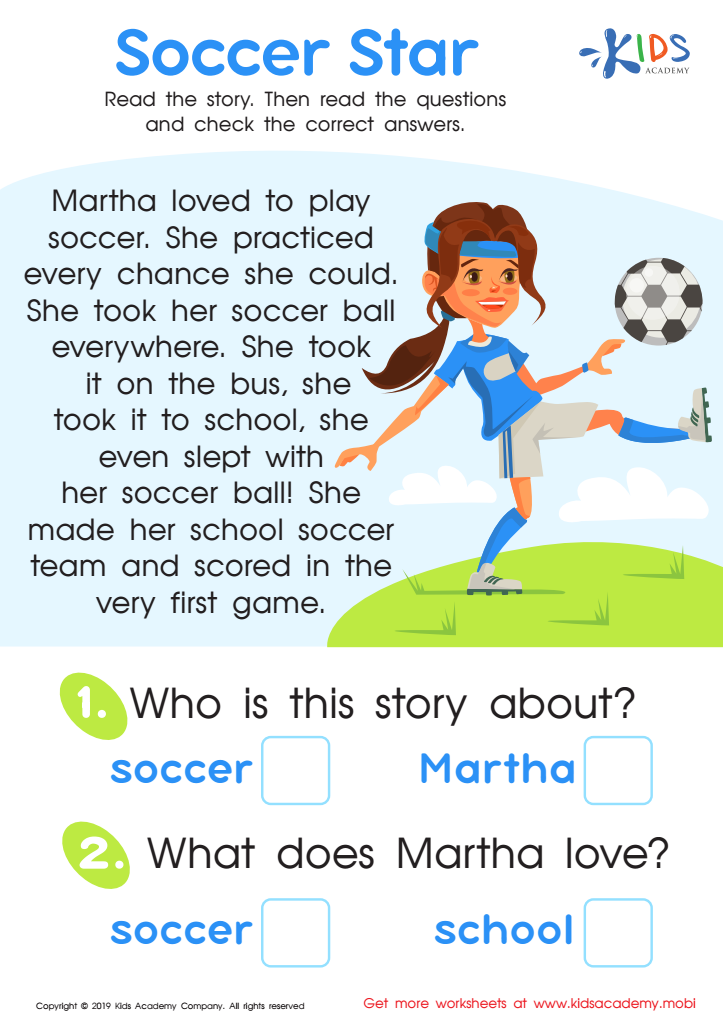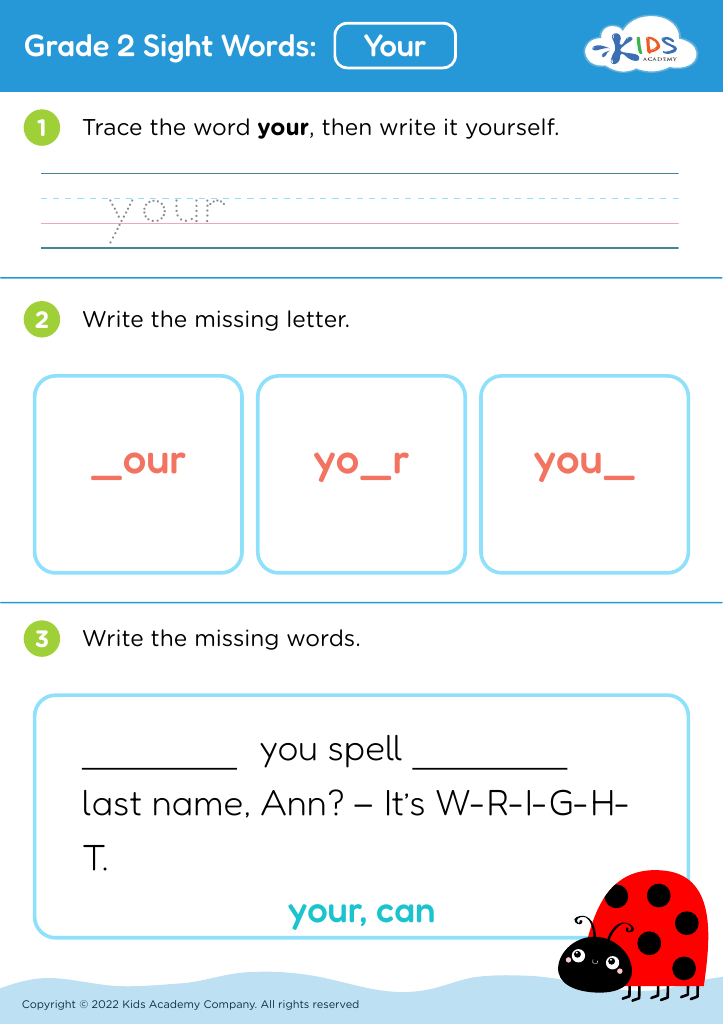Improve counting skills Reading Worksheets for Ages 8-9
5 filtered results
-
From - To
Enhance your child's counting skills with our engaging worksheets tailored for ages 8-9! At Kids Academy, we offer a variety of interactive reading exercises designed to make learning enjoyable and effective. These printable worksheets help young learners practice essential counting concepts, develop number recognition, and boost their confidence in math. Each activity is crafted to reinforce counting through fun themes and relatable scenarios, ensuring that children deepen their understanding while enjoying the process. Foster your child's love for learning and support their educational journey with our specialized resources that blend reading and counting seamlessly. Start their counting adventure today!


Soccer Star Worksheet
Parents and teachers should prioritize improving counting skills in children aged 8-9 because these foundational skills are critical for academic success and everyday life. At this age, children are transitioning into more complex mathematical concepts, where strong counting abilities enable them to tackle addition, subtraction, and even multiplication. Proficient counting lays the groundwork for understanding patterns, number sense, and ultimately problem-solving skills.
Additionally, improving counting skills boosts confidence and encourages a positive attitude toward math. Children who struggle with counting may become reluctant to engage with mathematics, leading to a fixed mindset that hampers their growth. Active engagement in counting activities—such as games, recipes, or board games—also promotes social interaction, teamwork, and communication among peers.
Moreover, methodology in teaching counting can foster critical thinking and cognitive development. By implementing diverse strategies like grouping, skip counting, and real-world applications, educators and parents can make math enjoyable and relevant. As these skills advance, children will not only perform better in math subjects but also develop analytical skills useful in sciences and data interpretation, which are essential in our increasingly data-driven world. Empowering children at this stage sets them up for lifelong learning and success in numerous spheres.

 Assign to My Students
Assign to My Students




















